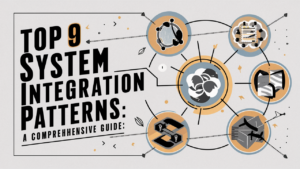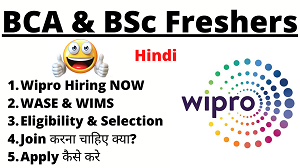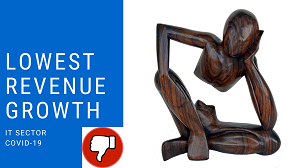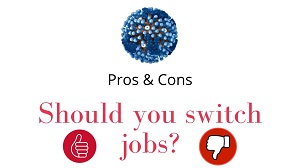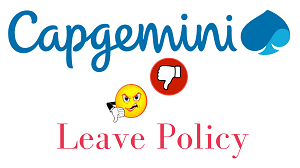Navigating the job market can be challenging, and it’s essential to identify workplaces that will not only offer you a job but also support your growth and well-being. Recognizing a great workplace begins before the interview and continues through the entire hiring process. This guide “Interview Green Flags” outlines key green flags to look for before, during, and after your interview, ensuring you can identify and secure a position in a positive and supportive environment.
Before the Interview
Detailed Job Description
A detailed and thorough job description is one of the first signs of a great workplace. It should clearly outline:
- Responsibilities: Specific duties and expectations.
- Requirements: Necessary skills and qualifications.
- Compensation: Salary range and benefits.
A comprehensive job description indicates transparency and effective communication from the employer.
Well-Structured Interview Process
A well-organized interview process reflects the company’s efficiency and respect for candidates’ time. Look for:
- Appropriate Length: Interviews that are neither too short nor excessively long.
- Clear Stages: Defined steps and stages in the interview process.
- Preparation Tips: Guidance on what to expect and how to prepare.
This structure demonstrates the company’s commitment to a fair and thoughtful evaluation of candidates.
Well-Structured Interview Process
Researching reviews on platforms like Glassdoor can provide insights into the company culture and employee satisfaction. Positive reviews from current and former employees can signal a healthy work environment. Pay attention to:
- Consistent Praise: Repeated mentions of good management, work-life balance, and career growth.
- Transparency: Honest reviews that discuss both pros and cons realistically.
These reviews can help you gauge if the company aligns with your values and expectations.
During the Interview
Punctual Interviewer
An interviewer who arrives on time and adheres to the scheduled timeframe shows respect for your time and indicates good time management within the company. This punctuality reflects:
- Professionalism: A commitment to efficiency and organization.
- Respect: Valuing the candidate’s time and effort.
Conversational Interview
An interview that feels more like a conversation rather than a rigid Q&A session suggests a workplace that values open communication and employee input. Key characteristics include:
- Engagement: The interviewer listens actively and encourages dialogue.
- Connection: Building rapport and understanding your perspectives.
This style can indicate a collaborative and inclusive work environment.
Enthusiasm and Excitement
An interviewer who speaks passionately about the company and the role demonstrates a positive and motivating workplace culture. Look for:
- Positive Energy: Genuine excitement about the company’s mission and future.
- Encouragement: Enthusiasm about your potential contribution to the team.
This passion can be contagious and indicative of a vibrant and engaging work culture.
Focus on Cultural Fit
Questions aimed at understanding if you would be a good cultural fit show that the company values its work environment and team dynamics. Indicators include:
Personal Interest: Questions about your values, work style, and interests.
Team Compatibility: Ensuring you align with the company’s core values and culture.
A focus on cultural fit suggests a company that prioritizes harmony and cooperation among its employees.
Respecting Others
Observation of how current employees interact can provide valuable insights. Signs of mutual respect and professionalism include:
Positive Interactions: Employees communicate respectfully and supportively.
Relaxed Atmosphere: A comfortable and friendly work environment.
Respect among colleagues is fundamental to a healthy and productive workplace.
Clear Next Steps
Receiving a clear outline of the next steps after the interview shows that the company is organized and transparent. This includes:
Timelines: Specific dates for feedback or subsequent interviews.
Expectations: What you should prepare or expect next.
Clear communication about the process reflects the company’s professionalism and respect for candidates.
After the Interview
Prompt Communication
Timely updates on your interview status are a strong indicator of a company’s organizational skills and respect for candidates. Prompt communication includes:
Feedback Timelines: Providing updates within the timeframe promised.
Courtesy: Informing you of delays or changes promptly.
This promptness reflects a well-managed hiring process and shows that the company values your time.
Feedback on Interview
Constructive feedback on your performance demonstrates that the company values continuous improvement and is willing to invest in your development. Positive signs include:
Detailed Insights: Specific feedback on what you did well and areas for improvement.
Encouragement: Suggestions for growth and how to better align with the company’s expectations.
Feedback, whether positive or constructive, shows that the company is committed to helping candidates succeed.
Flexibility in Offer Negotiations
A company willing to negotiate aspects of the job offer indicates a value for mutual satisfaction and employee well-being. Consider:
Open Discussions: Willingness to discuss salary, start dates, and benefits.
Accommodation: Adjusting terms to meet your needs and expectations.
Flexibility in negotiations reflects a company’s respect for its employees’ needs and a commitment to finding a mutually beneficial agreement.
Respectful Onboarding Process
A seamless and respectful onboarding process is a strong indicator of a supportive and organized workplace. Key aspects include:
Preparation: Providing necessary resources and information before your start date.
Support: Assigning a mentor or point of contact to help you settle in.
A well-planned onboarding process shows that the company is invested in your success from the outset.
Conclusion:Interview Green Flags
Recognizing a great workplace involves looking for specific green flags throughout the hiring process. From a detailed job description and a well-structured interview process to prompt communication and respectful interactions, these indicators can help you identify a company that values its employees and fosters a positive work environment. By being aware of these signs, you can make informed decisions and find a workplace where you can thrive and grow.


